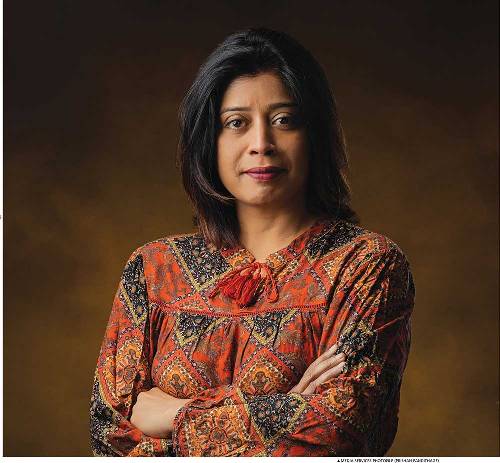Of the virtual Tsunami released through the latest disclosure by WikiLeaks, the most dangerous is the revelation that United States officials in 1999 were pushing for a propaganda war, especially in Afghanistan and Pakistan, against Osama bin Laden before the deadly terror attacks on Sept. 11, 2001. “It is our impression that the USG (United States Government) is not doing as well as it might projecting public diplomacy on Osama Bin Laden (OBL),” adding, “We would like to suggest that Washington consider a review of this public diplomacy effort.” Cautioning that pending distribution of OBL “wanted” posters and matchbooks in Pakistan may increase OBL’s stature as a kind of folk hero”, the State Department cable dated January 26, 1999. Noted, “We frequently hear reports that some in the lower middle and lower classes, both urban and rural, consider OBL (Osama bin Laden) an ‘Islamic Hero’, because the US has named him ‘Public Enemy Number One’.” “That said it’s our impression that the majority of Muslims, at least in Pakistan, do not necessarily support this view,” it stressed.
The cable outlined “effective methods” for a propaganda war against bin Laden through the Voice of America language services, interviews with bin Laden’s Muslim victims, commissioned articles in the local press and by virtual presence on the Internet. Arguing in favor of an anti-bin Laden website, the cable said, “Although that would appear to be counterintuitive – that the masses don’t use the Internet – almost all Islamic and Islamist groups do indeed have internet access and use it extensively.” “We are unlikely to make much inroad with OBL’s hard-core supporters because they are true-believers absolutists and tend to think and react emotionally: Facts are less important to them than emotions,” it said, noting, “They are not open to persuasion.” However, the American diplomat in Islamabad argued about a majority of Pakistanis, saying, “This middle ground, or at least somewhat susceptible to reason, or at least to other information, should be our primary target.” “The message crafted for them would also be welcomed by educated, westward-looking elite of both Pakistan and Afghanistan, who feel threatened by OBL’s advocacy and violence and theological obscurantism,” the cable said. “The focus of any enhanced USG public diplomacy effort should be to portray OBL and others around him as criminals, both by international and by Islamic standards. Where possible, responsibility of the movement al Qaeda should be emphasized, not just OBL (bin Laden) as an individual,” it said.
For the audiences in Afghanistan, the cable said, “When we focus on bin Laden, and especially for Afghan consumption, we should make three points: 1) The U.S. is not against Afghanistan and the Afghan people, 2) The U.S. is not against any particular any Afghan political faction, and 3) The U.S. wants OBL expelled from Afghanistan to a place where he can be brought to justice.”
The sensational WikiLeaks exposé has caused people to lend credence to the earlier rumour grist that 9/11 was an indigenous conspiracy, planned and executed by the United States to find an excuse for attacking and invading Afghanistan. The recent disclosure of the presence of precious metals in Afghanistan, the information of which the US had prior to 9/11, is a case in point. It has now come to the fore that The United States has discovered nearly $1 trillion in untapped mineral deposits in Afghanistan, far beyond any previously known reserves and enough to fundamentally alter the Afghan economy and perhaps the Afghan war itself, according to senior American government officials. The previously unknown deposits—including huge veins of iron, copper, cobalt, gold and critical industrial metals like lithium—are so big and include so many minerals that are essential to modern industry that Afghanistan could eventually be transformed into one of the most important mining centers in the world, the United States officials believe.
An internal Pentagon memo, for example, states that Afghanistan could become the “Saudi Arabia of lithium,” a key raw material in the manufacture of batteries for laptops and BlackBerrys. The vast scale of Afghanistan’s mineral wealth was discovered by a small team of Pentagon officials and American geologists. The Afghan government and President Hamid Karzai were recently briefed, American officials said. While it could take many years to develop a mining industry, the potential is so great that officials and executives in the industry believe it could attract heavy investment even before mines are profitable, providing the possibility of jobs that could distract from generations of war. “There is stunning potential here,” General David H. Petraeus, commander of the United States Central Command, said in an interview. The value of the newly discovered mineral deposits dwarfs the size of Afghanistan’s existing war-bedraggled economy, which is based largely on opium production and narcotics trafficking as well as aid from the United States and other industrialized countries. Afghanistan’s gross domestic product is only about $12 billion. However, it has now come to light that the US was in picture of the existence of the minerals before it invaded Afghanistan.
At the same time, American officials fear resource-hungry China will try to dominate the development of Afghanistan’s mineral wealth, which could upset the United States, given its heavy investment in the region. After winning the bid for its Aynak copper mine in Logar Province, China clearly wants more, American officials said. However, it is alarming that the US has orchestrated one of the oldest imperialistic façades of invading a country, it suspected contained rich minerals. It could thus be assured of having exclusive rights to mine the minerals and pocket the profits. If this is true, then the US has a lot to answer to the international court of justice, since its war machine has already slaughtered over 30,000 Afghans and despite suffering defeats at the hands of the Afghan resistance, it is reluctant to depart from Afghanistan.
Post Disclaimer | Support Us
Support Us
The sailanmuslim.com web site entirely supported by individual donors and well wishers. If you regularly visit this site and wish to show your appreciation, or if you wish to see further development of sailanmuslim.com, please donate us
IMPORTANT : All content hosted on sailanmuslim.com is solely for non-commercial purposes and with the permission of original copyright holders. Any other use of the hosted content, such as for financial gain, requires express approval from the copyright owners.
 Sri lanka Muslims Web Portal Sri Lanka Muslims News Center
Sri lanka Muslims Web Portal Sri Lanka Muslims News Center



